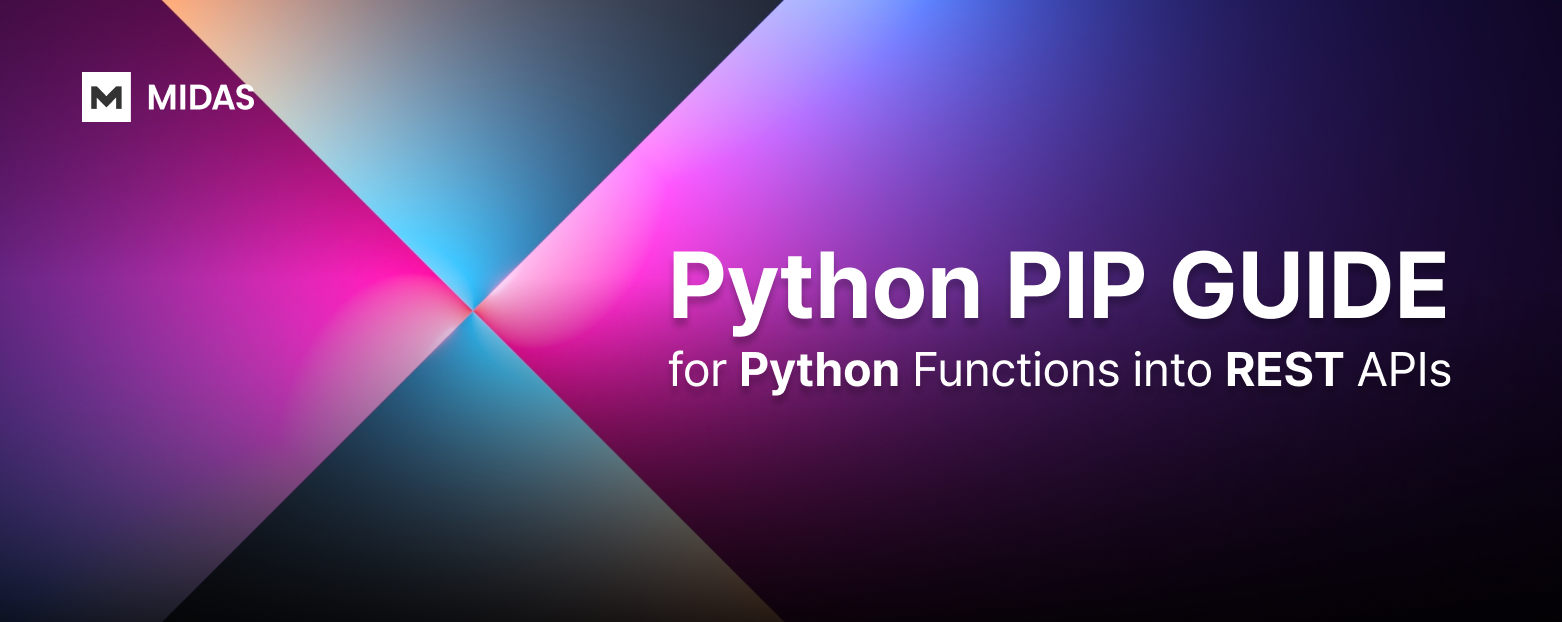

Midas API: Revolutionizing Engineering 🚀
Welcome to the future of engineering with Midas API! 🌟 This cutting-edge repository is designed to transcend traditional engineering methodologies. A goldmine of innovation, Midas API eagerly awaits your contributions. Let's push the boundaries of possibility together! 😊
Table of Contents
Introduction
Midas API is a state-of-the-art tool designed to revolutionize the field of engineering. By providing robust, scalable, and efficient solutions, Midas API empowers engineers to tackle complex challenges with ease. Whether you're a seasoned professional or a newcomer, Midas API is here to support your engineering journey.
Getting Started
Prerequisites
- Install VSCode: Download and install Visual Studio Code from the official Visual Studio Code website.
- Install Python: Download and install Python 3.12.1 from the official Python website. Ensure Python is added to your PATH during installation.
- Install Pipenv: Use pip to install Pipenv, a tool that helps manage dependencies.
pip install pipenv
- Install Project Dependencies: Navigate to your project directory and install the necessary modules using Pipenv.
pipenv install
- For development environment:
pipenv install --dev
- Prepare to Use Midas API: Visit the Midas API Documentation for more details.
Coding Conventions
Project Structure
- project/: Develop each plugin within this folder.
- base/: Contains shared utility functions and base modules like MidasAPI. Use this folder for any calculation base functions.
- tests/: Contains test files for regression testing.
- rod/: Extract JSON schema from this repository.
- docs/: Sphinx document folder.
Style Guide
Adhere to the Google Python Style Guide for comprehensive coding conventions.
- Using Flake8: Install
flake8 to automatically check and enforce coding conventions during development.
pip install flake8

- Development Environment: Configure your development environment to use
flake8. Ensure any issues flagged by flake8 are corrected promptly.
Documentation Guide
Proper documentation is key to maintainability. Ensure that all functions, especially those in the base module, are well-documented.
- Using autoDocstring: Install
autoDocstring to assist with writing docstrings. (ctrl + shift + 2)

- Docstrings: Use Google-style docstrings. Install the necessary extensions to assist with writing docstrings.
-
Example: Data class with docstring:
from dataclasses import dataclass, field as dataclass_field
@dataclass
class Person:
"""
Person details.
"""
name: str = dataclass_field(default="", metadata={"description": "The person's full name."})
age: int = dataclass_field(default=0, metadata={"description": "The person's age."})
email: str = dataclass_field(default='', metadata={"description": "The person's email address."})
-
Example: Pydantic model with docstring:
from pydantic import BaseModel, Field
from typing import List, Dict, Union
class Contact(BaseModel):
"""
Contact details.
"""
phone: str = Field(default="", description="The contact's phone number.")
address: str = Field(default='', description="The contact's address.")
def my_function(person: Person, contacts: List[Contact], settings: Dict[str, Union[int, str]] = {}) -> bool:
"""
Processes person and their contacts with given settings.
Args:
person: The person details.
contacts: List of contact details.
settings: Miscellaneous settings.
Returns:
bool: True if successful, False otherwise.
"""
return True
Testing
Ensure the reliability of new code by writing comprehensive tests.
-
Regression Tests: For any additions to the base module, add corresponding regression tests using pytest.
-
Test Files: Save test files in the tests folder with the test_*.py naming convention.
- Example Test:
import json
import pytest
import moapy.plugins.baseplate_KDS41_30_2022.baseplate_KDS41_30_2022_calc
def test_baseplate_KDS41_30_2022_calc():
input = {
'B' : 240, 'H' : 240, 'Fc' : 24, 'Fy' : 400,
'Ec' : 25811.006260943130, 'Es' : 210000,
'bolt' : [
{ 'X' : 90, 'Y' : 0, 'Area' : 314.15926535897933 },
{ 'X' : -90, 'Y' : 0, 'Area' : 314.15926535897933 } ],
'P' : -3349.9999999999964, 'Mx' : 0, 'My' : 51009999.999999985
}
JsonData = json.dumps(input)
result = moapy.plugins.baseplate_KDS41_30_2022.baseplate_KDS41_30_2022_calc.calc_ground_pressure(JsonData)
assert pytest.approx(result['bolt'][0]['Load']) == 0.0
assert pytest.approx(result['bolt'][1]['Load']) == -269182.84245616524
Summary
- Coding Conventions: Follow the Google Python Style Guide and use
flake8 for enforcement. - Documentation: Write and maintain proper docstrings for all functions.
- Testing: Develop test cases for new functions to enable regression testing.
By adhering to these rules and conventions, we can ensure our codebase remains high-quality, consistent, and reliable.







